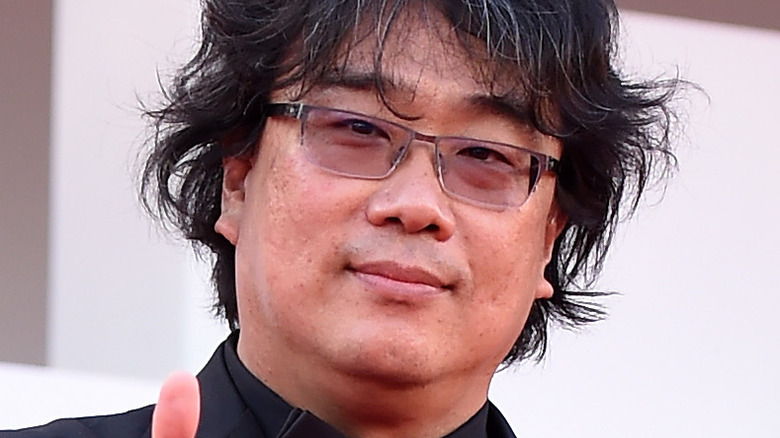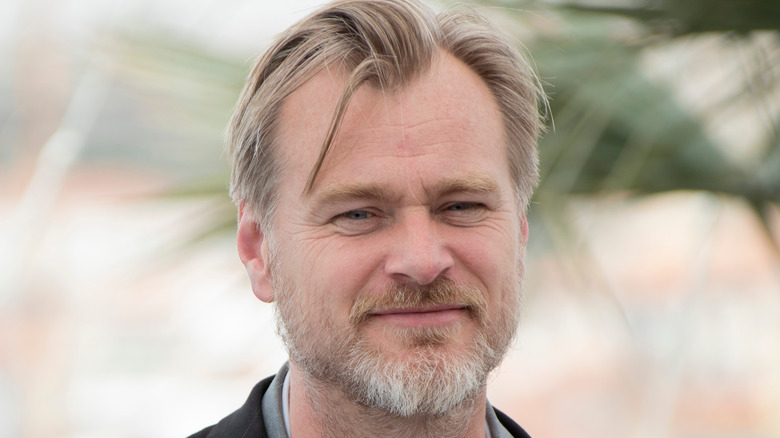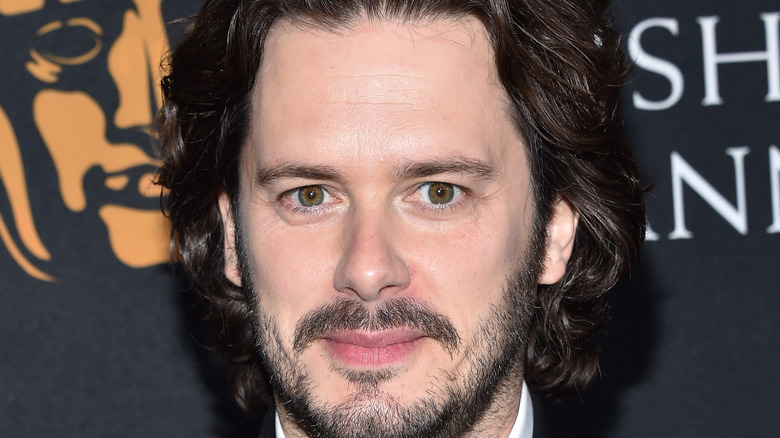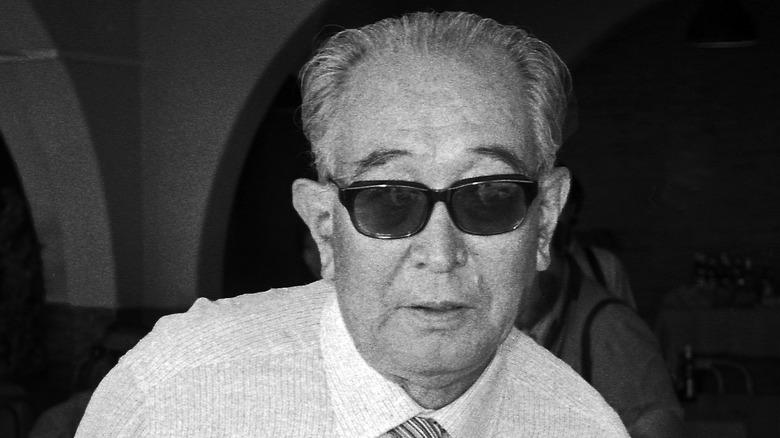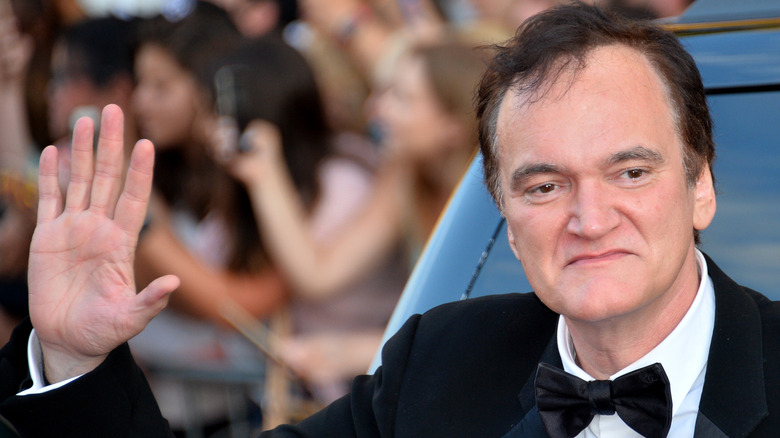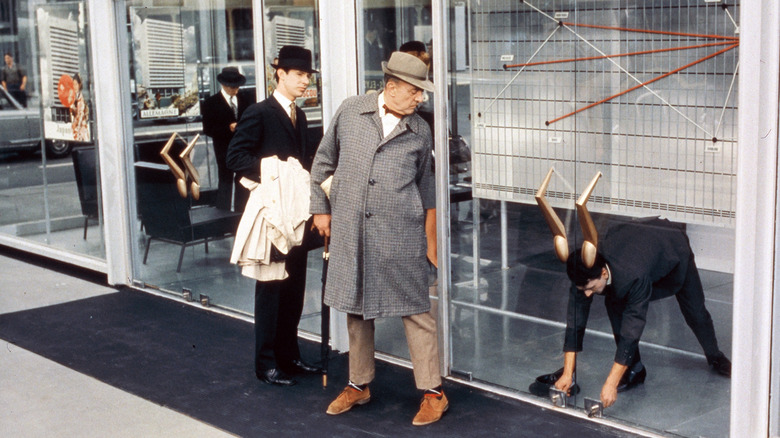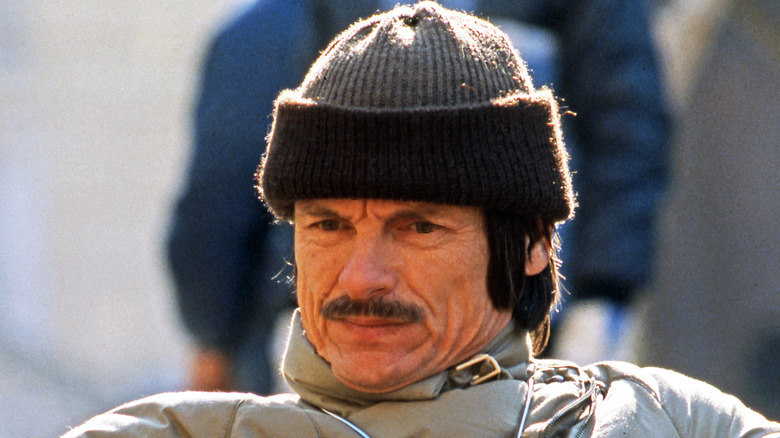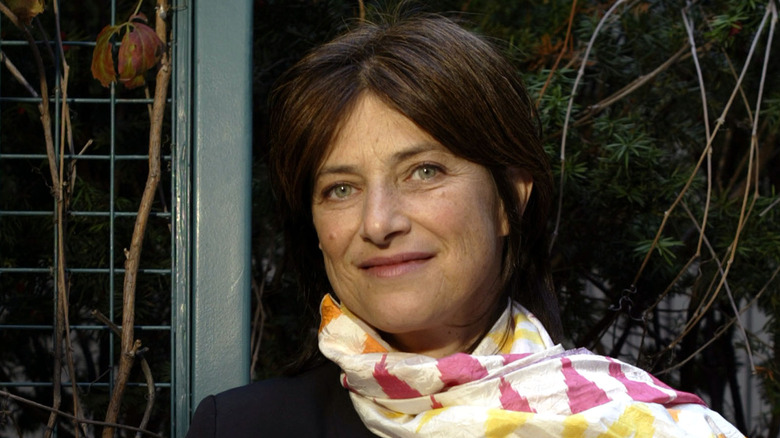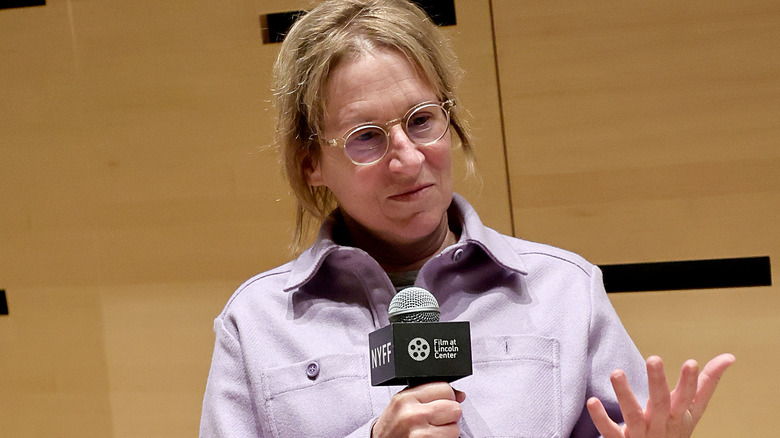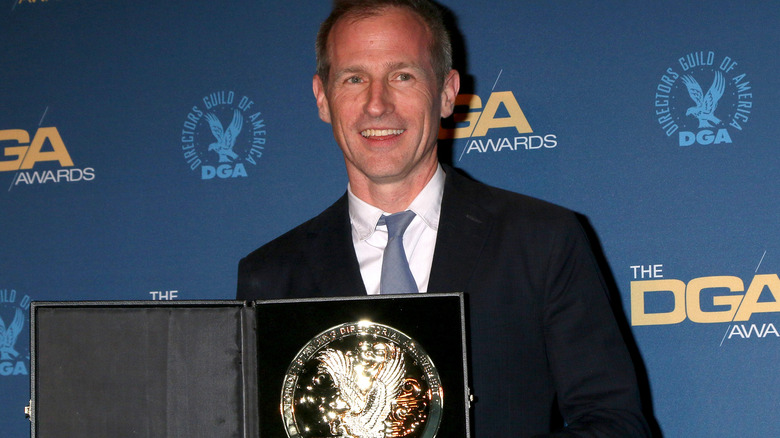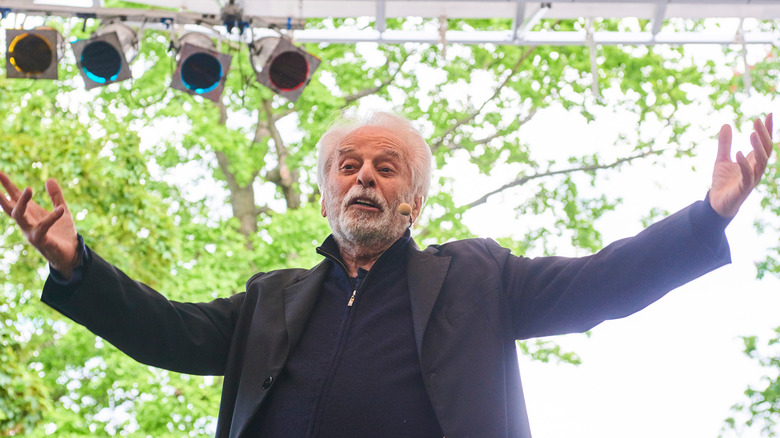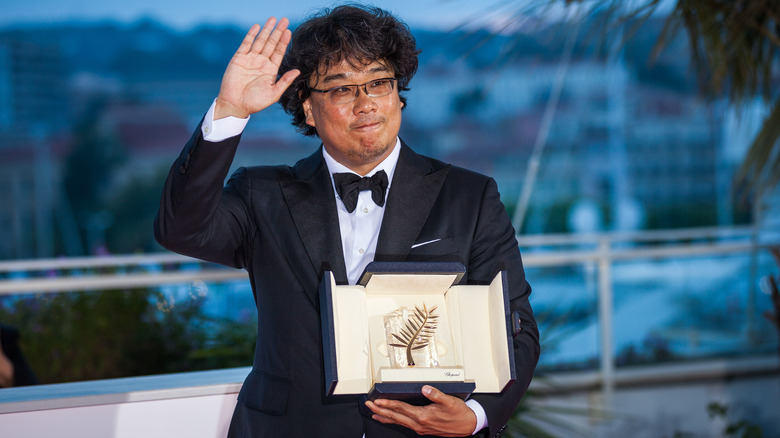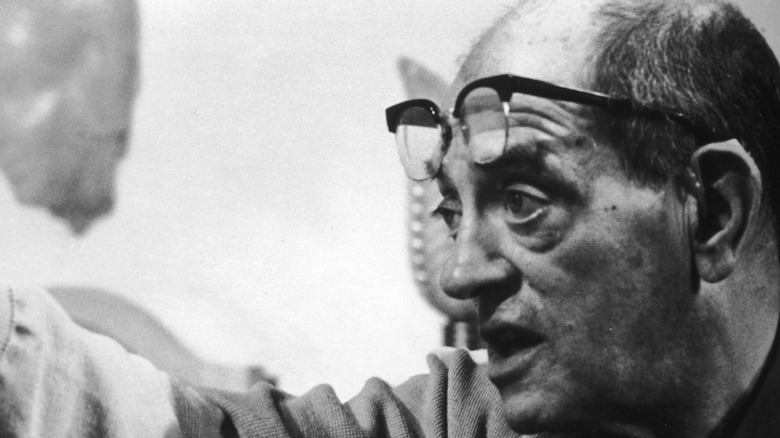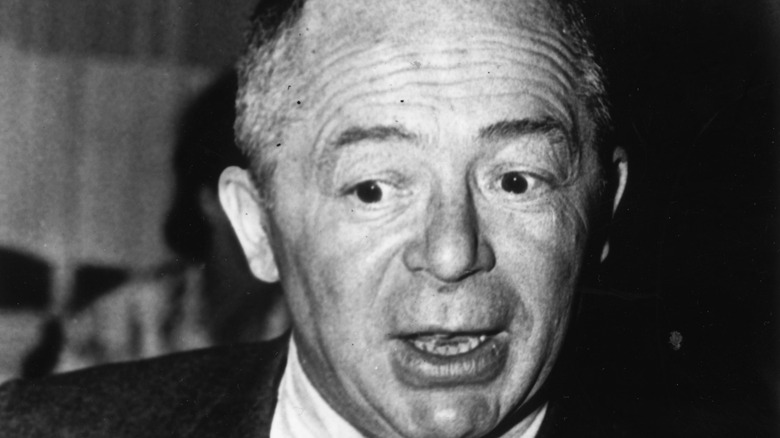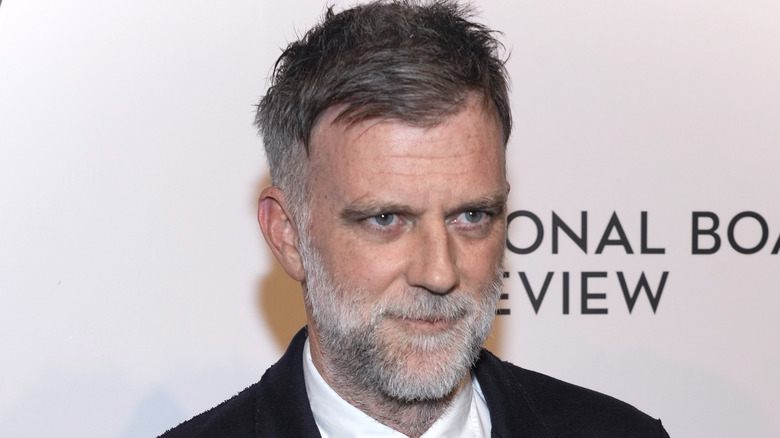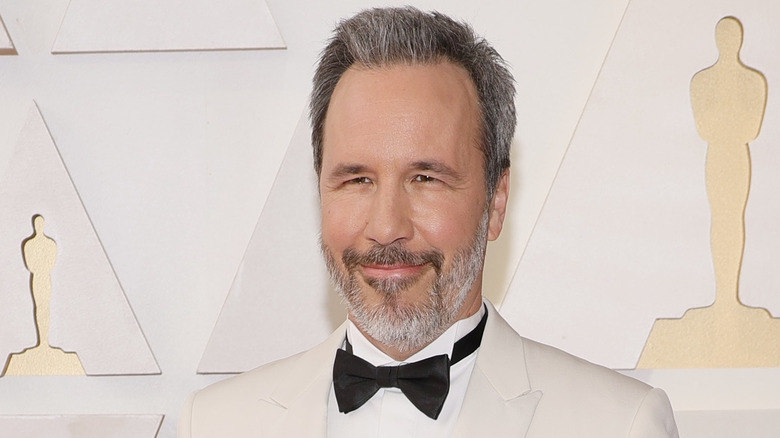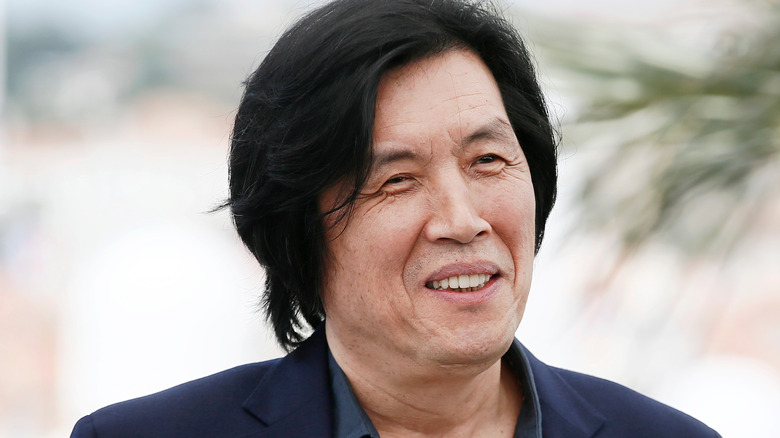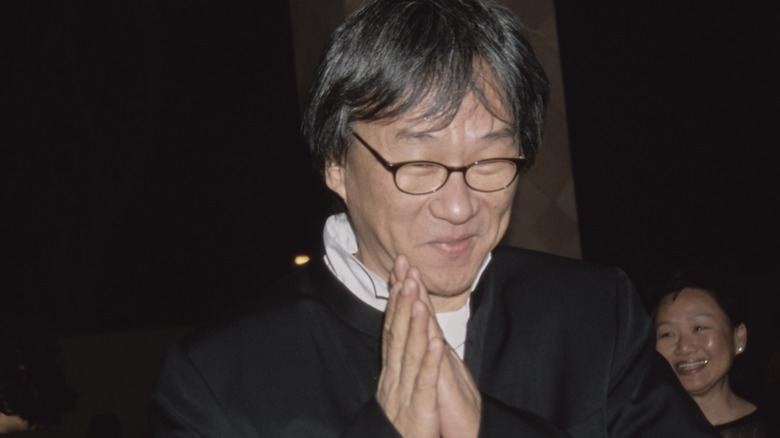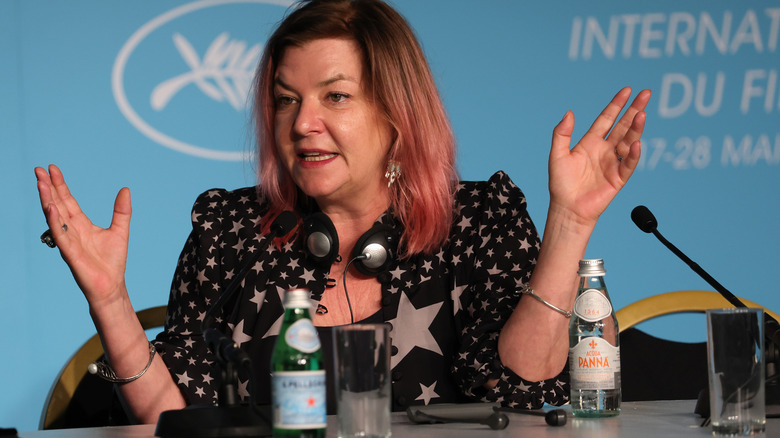18 Directors Who Never Made A Bad Movie
We may receive a commission on purchases made from links.
Creating and maintaining a perfect track record is an incredibly tall order in any field, particularly in the arts, where subjectivity plays such a strong factor. Making even a single great film requires the stars to align perfectly; everyone involved in front of and behind the camera, it seems, needs to bring their A-game. Making a memorable classic with every single production? That requires the steady hand of a world-class filmmaker.
There are not many directors who have perfect filmographies. Even among the world's greatest directors — Lynch ("Dune"), Spielberg ("1941"), Scorsese ("New York, New York") — there's typically at least one bona fide dud in their back catalog.
The filmmakers who have yet to miss are truly a select few. In the eyes of Rotten Tomatoes critics consensuses rankings, at least, these are the directors (without a single "rotten" among them) who hold such elite status.
Christopher Nolan
Nolan made his feature-film debut in 1998 with the low-budget thriller "Following." Right out of the gate, he was playing around with non-chronological storytelling, and right out of the gate, he made a winner. Nolan's films since then have grown in scope, budget and ambition — they also haven't just been enjoyed by critics but have been loved enough to earn the coveted Certified Fresh badge on Rotten Tomatoes. That is, until "Tenet."
Nolan's most recent film is also his lowest-rated and the closest he has come to losing his perfect win-streak, but he was able to eke out a fresh score regardless. His "Dark Knight" trilogy were both fan favorites and critical darlings, as were the mind-messing classics "Memento," "Inception" and his "Insomnia" remake, the magical drama "The Prestige," the war epic "Dunkirk" and the outer space outlier "Interstellar." The overwhelming reaction to "Oppenheimer" proves the director hasn't lost it.
Edgar Wright
After making his way up the industry ranks with indie short films and TV shows like "Spaced," British filmmaker Edgar Wright landed in the mainstream spotlight with 2004's "Shaun of the Dead." Whether it be the follow ups that rounded out his Cornetto trilogy ("Hot Fuzz" and "The World's End") or his American productions like "Baby Driver" and "Scott Pilgrim vs. The World," Wright has a perfect filmography so far. He also has the distinct honor of having ever single film he has directed thus far earn the Certified Fresh badge from Rotten Tomatoes critics.
Wright's most recent film, the 2021 thriller "Last Night in Soho," found him working far outside the typical comedic genre fusions with which he made his name. This departure was well-received, but marked his first time dipping below 80% fresh. Wright also made his debut as a documentarian in 2021 with the music-doc "The Sparks Brothers" profiling the titular music group dubbed "your favorite band's favorite band." Wright also directed a special Sparks Brothers concert performance titled "What the Hell Is It This Time? Sparks Live in London."
Akira Kurosawa
One of the most influential filmmakers who has ever lived, the Tokyo-born Kurosawa began his directorial career in 1943 with "Sanshiro Sugata." Exactly half a century later, his career came to a close in 1993 with his final film, "Madadayo" ahead of his passing later on in the decade. In between were such instant (and oft-ripped off by American filmmakers) classics as "Rashomon," "Seven Samurai," "Ikiru," "Ran," "Kagemusha," "Sanjuro," and "Yojimbo."
The film industry changed drastically throughout the time of Kurosawa, and he was a major force behind that change, not just in his home country of Japan but all over the world.
Kurosawa directed over 30 feature films, and although he is most often linked to the samurai genre, that shouldn't overshadow his non sword-brandishing movies, which were no less impressive. The effects of WWII and the subsequent U.S. occupation of Japan during Kurosawa's time as a filmmaker heavily influenced multiple films; in his early career he toiled under strict censorship, yet crafted such notable films as "Stray Dog"; as censorship rules loosened, he yielded classics like his penultimate film "Rhapsody in August," which centers around reactions to the atomic bomb dropped on Nagasaki.
Quentin Tarantino
Quentin Tarantino is one of the most recognized names in all of cinema. Tarantino made his directorial debut with 1992's "Reservoir Dogs," an immediate breakout hit; his follow-up effort, "Pulp Fiction," sealed the deal on Tarantino as the next big thing to hit Hollywood.
The only directorial outing from Tarantino that didn't impress Rotten Tomatoes critics was the poorly-received "Four Rooms." In fairness, Tarantino only directed the final of the film's four vignettes; his is easily the best in the film and might very well have earned a fresh consensus if judged in isolation.
Reading down his filmography is like naming off the best films of the last three decades — and that doesn't even include Tarantino-penned classics like "True Romance" and "From Dusk Till Dawn": 1997's "Jackie Brown," 2009's "Inglorious Basterds," the "Kill Bill" films, "Django Unchained," "The Hateful Eight," and the film he considers his best (and audiences would seem to agree), 2019's "Once Upon a Time in Hollywood."
While Tarantino is far from being the most prolific filmmaker in Hollywood (he has just nine directing efforts in 30 years), and plans to retire after his impending 10th film, it's hard to argue with the results. Leaving behind a complete, compelling total body of work free from misfires is something that is clearly important to Tarantino on a personal level; if his next movie hits the mark, he'll truly go down in film history as a filmmaking phenomenon like none other.
Jacques Tati
French filmmaker Tati was a one-of-a-kind comedy maestro, drawing influence from vaudeville and silent films to deliver a unique brand of slapstick and visual humor. Though occasionally sporting lines of dialogue, Tati's movies had the DNA of silent films — typically, their jokes would unfold wordlessly, methodically, and artfully.
The so-called "King of French Comedy" only made six films — which, admittedly, helps with his directorial batting average — but it's hard to beat his classics, almost entirely focused on a clumsy, trench-coated, well-meaning character played by Tati: 1953's "Monsieur Hulot's Holiday," 1967's "Playtime," 1958's "Mon Oncle," and 1949's "Jour de Fete" among his best. Legends from Peter Sellers to Rowan Atkinson to Wes Anderson are among those Tati has influenced.
"The movie is constructed with the meticulous attention to detail of a Keaton or Chaplin. Sight gags are set up with such patience that they seem to expose hidden functions in the clockwork of the universe," Roger Ebert said in his review of "Holiday," and of the Hulot character. "There is an almost spiritual acceptance in his behavior; nothing goes as planned, but nothing surprises him."
Tati's background in the circus and as a mime fed into his cinematic comedy stylings, with his film career beginning in the late 1940s and coming to a close in the '70s, his work an intricately crafted puzzle box of slapstick comedy. Newbies could start with his 1967 masterpiece "Playtime," arguably Tati's most celebrated work, but all of his movies are sure to tickle any fan of visual, absurd humor.
Andrei Tarkovsky
Russian filmmaker Andrei Tarkovsky is cited by some as one of the greatest, if not the single greatest, filmmaker who ever lived. One important voice in favor of that opinion was acclaimed Swedish filmmaker Ingmar Bergman, who championed him on many occasions, saying, "Tarkovsky is the greatest of them all."
Tarkovsky made just seven feature films throughout his career, but every single one of them was considered a masterpiece. His films "Andrei Rublev," "Mirror," and "Stalker" all landed on the BFI's Sight and Sound poll of the 100 best films ever made. His remaining films, "Ivan's Childhood," "Solaris," "Nostalghia," and "The Sacrifice" are all endlessly impressive and timeless works as well.
Part of the reason for Tarkovsky's stunted body of work was his untimely death; he passed away at age 54 from cancer. Some believe the illness could be tracked directly back to the making of his 1979 film "Stalker," shot downstream from a polluting chemical plant. The film's star Anatoliy Solonitsyn and Tarkovsky's wife Larisa (who served as his assistant director on set) passed away from the same type of cancer.
Tarkovsky's final film, "The Sacrifice," was released only a couple of months before he passed away; it deals in part with his ruminations on life and impending death, and is nearly unrivaled in its power.
Chantal Akerman
Belgian filmmaker Chantal Akerman might not be a household name amongst the average moviegoer, but hardcore cinephiles are familiar with "The Meetings of Anna," "Je Tu Il Elle," and "News From Home," all highly-acclaimed pieces of work. Her masterpiece, however, might just be "Jeanne Dielman, 23 Quai du Commerce, 1080 Bruxelles," a 1975 film that went "viral" recently when the British Film Institute's Sight and Sound critics poll named it as the number one greatest film ever made.
All of Akerman's films fared extremely well with critics during her career, but the general public was often less receptive. Her unique style of filmmaking was far outside mainstream norms, demanding patience and analysis from those who watched it. "Jeanne Dielman" is particularly divisive, as it uses a three-and-a-half-hour runtime to show the mundane daily routine of its titular character in excruciating detail. It is an easy film for the average person to write off as boring and/or pretentious, but those willing to go at the film's pace and get on its wavelength know the depth of substance that awaits below the surface.
Akerman continued working up until her death in 2015. Her final release was the documentary "No Home Movie," which offered a personal portrait of her mother and herself. Her mother passed away in 2014, and Akerman died shortly after releasing the documentary.
If you or anyone you know is having suicidal thoughts, please contact the NSP Lifeline by dialing 988 or by calling 1-800-273-TALK (8255).
Kelly Reichardt
Kelly Reichardt made her directorial debut with the 1994 drama "River of Grass." With a Sundance Grand Jury Prize nomination and multiple Independent Spirit Award nominations right out of the gate, Reichardt immediately put herself on the map as an exciting new filmmaker, and her subsequent eight films have been just as much (or even more) impressive with particular standout titles like "Wendy and Lucy," "Meek's Cutoff," and "Last Cow."
Her films thus far have been very arthouse, so they often don't perform particularly well with general audiences, but critics appreciate what she is doing. Despite rotten audience scores on a few of her films, critics have never given a score below an 85% on Rotten Tomatoes. While far from being a mainstream, commercial filmmaker, Reichardt is an awards darling and is frequently honored by prestigious institutions like the Cannes Film Festival and the Cahiers du Cinéma.
Spike Jonze
Spike Jonze took a decidedly strange route to break into the film industry. His first taste of notoriety came via the world of magazine publishing, as he was one of three founders of the former lifestyle magazine Dirt. He then made his way into directing by teaming up with many popular bands to direct their music videos. Jonze made some of the most iconic music videos of the '90s and 2000s, working with such groups as Sonic Youth, Weezer, Björk, The Chemical Brothers, R.E.M., Fatboy Slim, The Yeah Yeah Yeahs, and many more. One of Jonze's most important band collaborations was with The Beastie Boys, for whom he directed his first music video, and would later re-team decades later for the Apple TV+ documentary "Beastie Boys Story."
Jonze's feature film output is rather small, but each one of his four movies has been highly acclaimed. His first two were both written by the inimitable Charlie Kaufman: "Being John Malkovich" and "Adaptation." He then took up the writing himself for his latter two films: the adapted "Where the Wild Things Are" and the Oscar-winning original screenplay "Her." Jonze has continued making music videos and unscripted projects, but the talented filmmaker hasn't directed a feature-length narrative since "Her" in 2013.
Alejandro Jodorowsky
A Chilean filmmaker often hailed as one of the master surrealists, Jodorowsky is approaching his 100th birthday, and still working hard to get projects off the ground.
After getting his start in the notorious arts collective Mouvement Panique, he found his first brush with prominence with his feature-length debut in 1968, the bizarre, controversial "Fando and Lis." The nature of the film was so incendiary that it led to public fights and full-scale riots before eventually being banned in Mexico, its country of origin. This intense controversy did nothing to tone down Jodorowsky's work in the future, however, as his subsequent films throughout the '70s and '80s — "El Topo," "The Holy Mountain," and "Holy Blood" — continued to push boundaries, engage controversy and be acclaimed by critics.
The 2013 documentary "Jodorowsky's Dune" put a spotlight on the filmmaker's failed attempt to adapt the "Dune" novel for the big screen, but it also reignited his creative juices, leading to him returning to directing with his first feature film in over a decade: "The Dance of Reality." Jodorowsky followed up its success with "Endless Poetry," with both films earning the Certified Fresh badge on Rotten Tomatoes. Incredibly, Jodorowsky remains active even in his 90s with his documentary "Psychomagic, a Healing Art" releasing in 2019 and talks of an "El Topo" sequel seemingly neverending.
Bong Joon-ho
Perhaps the most famous, highly-acclaimed South Korean filmmaker working today, Bong Joon-ho's 2019 hit "Parasite" propelled him to an unparalleled level of international recognition. The film, a biting, bloody critique of class politics, became the country's highest-grossing movie ever, making history as the first foreign language film to win the Oscar for best picture.
All of Bong Joon-ho's seven feature films thus far have been embraced, and all except for his debut feature, "Barking Dogs Never Bite," have been Certified Fresh by Rotten Tomatoes critics. His lowest-scoring film was his Netflix Original "Okja," but even that has a score in the high 80s. Whether working in his native tongue with movies like "The Host" and "Memories of Murder" or in a hybrid of Korean and English for movies like "Snowpiercer" and "Okja," Bong Joon-ho only turns in gems. His next film is the scheduled-for-2025 release "Mickey 17," based on the "Mickey7" book series written by Edward Ashton.
Luis Buñuel
Spanish filmmaker Luis Buñuel was one of the defining surrealists working in the medium of cinema. Born at the turn of the century in 1900, Buñuel was an important voice in early cinema and a pre-eminent innovator of the form. His first directorial effort, the 1929 short film "Un chien andalou" made in conjunction with Salvador Dalí, would become a key work of the silent era and a landmark in surrealism on film.
In a career that spanned from the silent era through the late 1970s, Buñuel watched the film industry change drastically around him more than once. He proved remarkably versatile and adaptable, as the dozens of feature films he directed throughout his lifetime were all made at a similarly high caliber of quality. For a career that began so strongly, it is particularly impressive that some of Buñuel's most beloved films were made in the final stages of his career — "The Discreet Charm of the Bourgeoisie," "The Phantom of Liberty" among them, as well as the final film before his death at the age of 83, the Academy Award-nominated "That Obscure Object of Desire."
Billy Wilder
Winner of six Academy Awards and inspiration for the likes of Cameron Crowe, few filmmakers have ever been as versatile — and as supremely talented across genres — as Wilder, writer and/or director of such diverse classics as the romantic comedy "The Apartment," the intense war paranoia drama "Stalag 17," the noir classic "Double Indemnity" and the Hollywood commentary "Sunset Blvd."
Through it all, Billy Wilder forged a masterful directorial career that spanned half a century and a screenwriting career that stretched even further. Wilder wrote over 80 movies throughout his lifetime, making him one of Hollywood's most legendary screenwriters. While his directorial output wasn't quite as jaw-droppingly prolific, he was still at the helm of nearly 30 films. Not every single one of his movies completely blew the socks off of Rotten Tomatoes critics, but they were all winners to one degree or another, and many of them are timeless classics.
Wilder directed his first film, "Bad Seed," in the early-sound days and made his last film, "Buddy Buddy" in 1981. The cinematic landscape changed drastically and repeatedly throughout his active period, and Wilder managed to change with the times, remain relevant, and continue delivering quality films. While some of his films could be considered minor works, many of his others are all-time greats, including "Sabrina," "Ace in the Hole," "The Lost Weekend," and "Some Like it Hot." Directing even one film of such quality would be a career highlight for most filmmakers; Wilder did it repeatedly, for decades.
Paul Thomas Anderson
After making a major impression with his 1996 feature-film directorial debut, "Hard Eight," Paul Thomas Anderson quickly cemented himself as one of the finest filmmakers of his generation. From "Boogie Nights" and "Punch Drunk Love" to "There Will Be Blood" and "The Master," PTA has never been content to play it safe and stick to familiar territory. His films are as defined by their uniqueness as they are by their complex characters and the incredible performances he brings out in his actors.
After a long string of universally acclaimed successes, Anderson's win-streak was put in jeopardy by the coolly-received 2014 Thomas Pynchon adaptation "Inherent Vice." It remains Anderson's only film to earn a rotten score from general audiences and his only film to not earn the Certified Fresh badge from Rotten Tomatoes critics, but it still eked out a fresh critic score and kept his overall track record in good standing. His next film, "The Phantom Thread," was a welcome return to top form and his latest effort, "Licorice Pizza," was another success.
Denis Villeneuve
French Canadian filmmaker Denis Villeneuve is easily one of the most exciting directors of the modern age. He began catching the attention of cinephiles with drama films like "Incendies" and "Polytechnique" before finding mainstream success with his 2013 Oscar-nominated thriller "Prisoners." Though his name has only entered the public consciousness relatively recently, Villeneuve has already built up a substantial body of work. He has demonstrated an ability to quickly, consistently churn out high-quality motion pictures.
The same year as "Prisoners" hit theaters, Villeneuve had a second excellent film release, the unnerving horror thriller "Enemy." He followed up his busy 2013 with "Sicario," "Arrival," and "Blade Runner 2049," each released just one year after the other. After proving himself capable of bouncing between different genres, the sci-fi genre has become a focus for Villeneuve in the last few years with the two aforementioned titles and his adaptation of "Dune," which saw two equally incredible and successful parts in theaters.
Lee Chang-dong
While Lee Chang-dong might not be as famous as South Korean contemporaries like Bong Joon-ho and Park Chan-wook, he is right there among his country's most acclaimed filmmakers.
His first successful brushes with storytelling came in the form of novels from his prior career as a successful author long before getting into the film industry. Lee Chang-dong turned to directing later than most, and was already in his forties by the time he displayed an interest in filmmaking.
His first taste of the film industry came as a co-screenwriter for director Park Kwang-su on the films "To the Starry Island" and "A Single Spark." A few years later, he got the chance to write and direct his own film, and he made an impressive directorial debut with "Green Fish." His follow-up film, "Peppermint Candy," was even better, nailing down his newfound reputation as South Korea's next great auteur filmmaker.
Lee Chang-dong's 2010 drama "Poetry" wound up being his most acclaimed yet and entered the elite 100% club on Rotten Tomatoes, racking up over 70 positive reviews and not a single negative one. For as universally beloved as that film was, it turned out to be Lee Chang-dong's last for an extended period of time, the result of being blacklisted by the South Korean government and unable to exercise creative freedom. After eight long years, Lee Chang-dong made his triumphant return with the enigmatic thriller "Burning," which was short-listed for the Oscars and became a multi-award winner at the Cannes Film Festival and several other awards circuits.
Edward Yang
Edward Yang was born in Shanghai but went to the United States to study filmmaking at UCLA. He settled in Taiwan where he was at the forefront of a burgeoning cinematic movement. Yang became known as one of the defining voices of the Taiwanese New Wave cinema alongside other acclaimed filmmakers like Hou Hsiao-Hsien. His first directorial effort was the seldom-seen 1981 made-for-TV "Duckweed," which is nearly impossible to find today. His first true feature film arrived two years later in the form of "That Day, on the Beach." He followed that up with "Taipei Story" and "The Terrorizers," both well-received.
Yang's 1991 film "A Brighter Summer Day" and his 2000 film "Yi Yi," also known as "A One and a Two...," are cited by some as two of the finest dramas ever made. Both films made it into the top 100 in the BFI's decennial Sight & Sound poll and frequently pop up in similar rankings. "Yi Yi" was nominated for the Palme d'Or and earned Yang the Best Director prize at the Cannes Film Festival. Yang had plans to follow-up this major success with a few potential projects in the works, but they all wound up getting shelved as his health began to deteriorate. A protracted bout of colon cancer prevented any further filmmaking endeavors, and would claim his life in 2007.
Lynne Ramsay
Lynne Ramsay is a Scottish director with a unique, daring filmmaking style. She takes a poetic approach to narrative storytelling that breezes effortlessly through different perspectives, styles, and chronologies. Her distinctive directorial style allows her to transform what could otherwise be familiar stories into films that feel unlike anything else; they've all been Certified Fresh by Rotten Tomatoes critics.
After making a name for herself with a couple of impressive shorts, Ramsay made her feature-film debut with 1999's "Ratcatcher," shot in her home country. The film was met with widespread acclaim amongst the arthouse crowd, recognized by such prestigious institutions as the Cannes Film Festival and the BAFTAs — where Ramsay earned the award for Most Promising Newcomer. Ramsay followed up her breakout success with 2002's "Morvern Callar," then she slowed way down. She has continued directing highly-acclaimed films, but typically takes multiple years between projects.
Nearly a decade went by before Ramsay's next film, which was also her first shot in America, "We Need to Talk About Kevin." Six more years went by before "You Were Never Really Here" was released in 2017.
With just four feature films in nearly 25 years, Lynne Ramsay's output is as impressive as it is threadbare. She made the documentary short "Brigitte" in 2019 about photographer Brigitte Lacombe, but it may be awhile longer before her next feature film. According to Deadline, Ramsay's next movie will be a psychological thriller titled "Stone Mattress," an adaptation of the Margaret Atwood book of the same name, which is not a single narrative but rather a collection of short stories.
